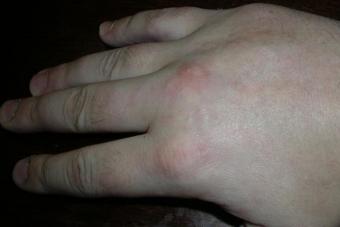When the blues and fatigue overcome, irreplaceable and accessible way bring yourself to your senses will walk. Why and how to walk correctly, we will tell below.
walks make it possible to combine physical activity(especially if you walk at a fast pace) with aesthetic pleasure. And the right companion makes the walk a time for socializing. After working in the office or in production, where there is often no sunlight, a person especially feels the benefit and pleasure of being on the fresh air .
Walking is good for weight loss or to save normal weight. Half an hour of fast walking burns as many calories as an hour of exercising at a sports club.
This is especially true for those who are contraindicated in serious sports loads. For example, if you have heart problems, walking is a good health practice. And for prevention. cardiovascular diseases outdoor walks are also helpful.
The benefits of being outside are invaluable for hypertensive patients and for those who experience hypotensive crises. Slow flanking allows you to get enough oxygen and gives you enough exercise.
Pregnant women will receive a special benefit from walking if there are no contraindications. Walking improves blood circulation and oxygenates the blood, and also helps maintain physical form. And the baby in the womb benefits from a mother's walk. And after childbirth, as the body recovers, you can quickly walk with a stroller. 
The benefits of walking for children
Toddler walks helpful starting from the first weeks of life. When discharged from the hospital, they usually specify when the child can go out for a walk for fifteen minutes. In the future, the duration of walks is gradually increased. Many children sleep well in strollers, at least in cool weather. But you need to remember that in severe frosts with kids do not go outside.
Older children are interested in exploring the world outside the home, and for schoolchildren walks in the open air- an indispensable way to warm up after sitting at the desks and, alas, in front of the screens. 
Walking in the sun helps produce vitamin D and are the prevention of rickets and other diseases. But children should be especially carefully protected from direct sun rays, and babies - from strong wind and cold.
How to walk effectively
For a walk, you need to choose, if possible, environmentally friendly places away from roads and industrial zones. It is important that the surroundings are pleasing to the eye, this will help relieve stress. It is advisable to choose a comfortable time of day: avoid the heat of the day in summer, and walk in the middle of the day in winter. This is especially important for children and people with poor health. Walking should be approximately two hours a day. Single forced marches are not as useful as regular walks.
Clothing and shoes for walking should be comfortable for long walks. They must be suitable for the weather and protect either from the bright sun or from the piercing wind.
Knowing the benefits of a walk in the fresh air, you can find the determination and start walking!
We hear the phrase “walking in the fresh air is good” so often that we decided to find out if this is really true. In general, we figured it out - really useful. In this material you will find five proofs of this.
1. Walking strengthens the immune system
In Japan already for a long time there is a method that not only helps to get rid of stress, but also has positive impact on the immune system. It is called Shinrin-yoku (shinrin-yoku), or forest bathing - the literal translation is "bathing among the forests." In an article prepared by the Japanese medical school(Nippon Medical School) in Tokyo, it is claimed that a walk in the forest can increase the amount of antitumor substances and increase the activity of natural so-called killers, which are aimed at destroying tumor cells. So how do you need to "take a bath" in the forest to achieve this effect? Researchers describe this process in the following way: "Walk in the forest to relax, inhaling deeply the air, which contains special volatile substances - phytoncides ( essential oils trees). It's all about these phytoncides - they kill and / or inhibit the growth and development of pathogenic bacteria.
In addition to reducing stress and boosting immunity, the researchers noted that walking in the forest leads to a decrease and reduction in the production of the hormone cortisol. From ourselves, we want to add that strong the immune system depends on many factors - sports, good night, healthy eating etc. Therefore, you should not rush from one extreme to another.
2. Reduce the risk of depression

Covers many people in autumn and winter Bad mood, which can slowly develop into . To prevent this from happening, scientists advise walking in the fresh air as often as possible. According to a study at Stanford University, a 90-minute walk in the woods reduces activity in a specific area of the brain that is active when a person experiences negative emotions or depression. Also, the likelihood of depression depends on where you live. The researchers note that those people who live in the city are prone to anxious and affective disorders 20% and 40% respectively more than those who live in rural areas. In principle, this is understandable various studies- traffic jams, fuss, queues, problems at work. Few people can remain calm and control their emotions, but this can and should be learned. As - we told in.
3. Improve memory and concentration

Is there a difficult exam coming up soon? Go out into nature if you feel like you can't learn anything else. In a study conducted at the University of Michigan, the following was found: walking in the forest, even in winter, improves memory and attention by 20% compared to walking in the city. In addition, another study published in the American Journal of Public Health found that children with ADHD tend to focus better when they are outdoors.
4. Increase the duration of sleep

healthy and deep sleep It starts with going outside and meeting the sun. According to a study published in The Journal of Clinical Sleep Medicine, people who spend a lot of time outdoors and indoors with natural light sleep an average of 46 minutes more per night. The study also says that in addition to sleep, the participants improved their mood, became more physically active and were generally happier.
The benefits of walking outdoors.
Often parents try to limit the time their child spends on a walk, although pediatricians and child psychologists have long proven that long walks in the fresh air are very beneficial for children.
To maximize the benefits of walking, experts advise walking and breathing fresh air with children. For children, such walks are very useful. Thanks to children, adults become more organized.
Walking is the simplest and surest means of hardening a child.
Walking with a child is necessary at any time of the year and in any weather, and the duration of the walk should be adjusted in accordance with weather conditions.
. Walk in the airis the best means of strengthening health, increasing immunity, and hence prevention colds in children and adults. Moreover, stroll helps to increase the child's appetite. Improves metabolism, nutrients are better absorbed. Thanks tooutdoor walksthere is a natural cleansing of the body, the upper respiratory tract functions better.
V summer time years, the child can be in the air all day.Well, if it will be a vacation in the country, where there is an opportunity to hide from the rain and the scorching sun.
Walk is an excellent remedy prevention of visual impairment in children. After all, on the street, where there is so much space, the child constantly has to move his eyes from nearby objects to objects far from him.
Walk - it the best remedy prevention of rickets in children. The body is saturated with ultraviolet light, which is responsible for the production of vitamin D in the body.
While walking the baby has a lot positive emotions and new experiences on which both his intellectual and social development depend.
Properly organized walk is the key to a good mood.
In order for the child to be active on the street, it is necessary to choose the right clothes. She should not hamper the movement of the child, prevent him from jumping and running. Do not put on a lot of things for the baby, this can only harm, lead to overheating, and then to a cold. Feel the baby's neck from the back. If it is dry and warm, everything is in order, if it is wet and hot -baby hot and he was sweating, then you need to go home. If the neck is cool, the baby is cold and should be insulated.
In order for the walk to be interesting, fun, parents should know how to entertain the child.
In the summer there may be games with a ball, jump rope, word games, observation of the surrounding world (living and inanimate nature). In winter - with snow, sledding, guessing riddles, skating.
On the topic: methodological developments, presentations and notes
Advice for parents "The benefits of walking in the fresh air for children"
Walking plays an important role in a child's life. During the walk, knowledge of the world around takes place, the child learns to communicate with peers, and the walk also has a healing value. Will give birth...
The benefits of walking outdoors.
How fresh air affects a person's condition It is known that fresh air, saturated with oxygen and moderately ionized, has the most positive effect on a person and helps to strengthen ...
Agree, you don’t really want to walk when it’s cloudy outside. Everyone knows that thanks to the sun we get vitamin D, but few people know that this happens even when the sun is not visible behind the clouds. We have collected as many as 6 benefits of walking in the fresh air that literally push you out for a walk.!
First, let's understand what happens when you are indoors for a long time. Firstly, you breathe the same air, in which the amount of oxygen decreases. Breathing in this stale air does not provide your body with enough oxygen. This can lead to physical and mental health, for example, to dizziness, nausea, headaches, fatigue and mental exhaustion, irritability, anxiety, depression, colds and lung diseases. Not a particularly attractive set, right?
Fresh air is good for digestion
Probably, you have often heard that after eating it is good to go for a light walk. Not only movement, but also oxygen helps the body to better digest food. This benefit of fresh air is really important if you are trying to lose weight or improve your digestion.
Improves blood pressure and heart rate
If you have problems with blood pressure, you should avoid polluted environment and try to stay in a place with clean and fresh air. Dirty environment makes the body work harder to get required amount oxygen, so the pressure may rise. Of course, for residents of megacities it is difficult to find fresh air but try to get out into nature at least once or twice a week.
Fresh air makes you happier
The amount of serotonin (or joy hormone) depends on the amount of oxygen you breathe in. Serotonin can significantly improve your mood and promote feelings of happiness and well-being. Fresh air helps you feel more relaxed. This is especially important for those who are used to raising their spirits with sweets. The next time you feel down, just go for a walk in a park or woods and see how it affects you.
Strengthens the immune system
This is especially important in the spring, when immunity is significantly reduced. Mud, dullness, rain are not particularly attractive for a walk, so at this time of the year we go out for a walk less often. However, the white blood cells that fight bacteria and germs need enough oxygen to do their job properly. Therefore, make it a habit to go out for at least a half-hour walk to help your immunity strengthen.
Clears the lungs
When you breathe in and out through your lungs, you release toxins from your body along with the air. Of course, it's important to breathe really fresh air so you don't absorb additional toxins. Therefore, we again advise you to go to nature as often as possible in order to restore lung function.
Increasing the amount of energy
Fresh air helps you think better and boosts your energy levels. to the human brain you need 20% of the body's oxygen, can you imagine? More oxygen brings greater clarity to the brain, improves concentration, helps to think more clearly and positive influence to the energy level.
And now we give specific advice on how to absorb more fresh air, and some of them can be done without leaving the city.
Try running outdoors. Find a wooded area or park in your city with large quantity trees and go for a run. The combination of cardio and oxygen has a good effect on the respiratory organs and increases the endurance of the body.
Go hiking in the woods once a week or two. In addition to providing your body with oxygen, it can also become an enjoyable pastime and even a family tradition. And it is always good to combine business with pleasure!
Keep plenty of plants in your home and workplace to improve air quality. Plants produce oxygen and absorb carbon dioxide (remember school curriculum?), and some of them can even remove toxic pollutants in the air.
Do every day physical exercise. If possible, do it outside. Sports help to start blood circulation more powerfully and supply the body with oxygen.
Ventilate the bedroom before going to bed and, if possible, sleep with open window. But this item should be performed only for those who do not live in the center of the metropolis.
Ekaterina Romanova
Air: yesterday, today and tomorrow, if it will be...
Although I am a psychiatrist by birth, I can’t understand some human oddities.
I see: on a fine day, mothers and fathers with babies sit on benches in the yards and parks with babies and in large numbers here and there are strong pensioners and pensioners. They are sitting. They sit for a long time. They are talking. They are silent. Someone is biting something. A goat is being slaughtered somewhere. And they sit again. Weird. After all, they could be like. And we could play football. In bast shoes, in volleyball, in towns? No, they are sitting.
One day I went to a huge gym to see, for the scientific purpose, how karate is practiced. I see: about a hundred sweat-drenched young people in kimonos are jumping, waving their arms and legs, striking each other's shadows, shouting: “Y-ah-ah!” But, my God, what is it ... Six huge transoms, but only one is slightly ajar, with 7 degrees of heat outside. Hold your nose and run away from here...
What is more important for health: air or movement?
Who is greater - Bach or Mozart? Pushkin or Tolstoy? Shakespeare or Dante?
What does it seem to be talking about?
Fresh air is good, it is useful. We know. Only now something is blowing, let's cover the window ...
Humanity suffers from chronic relapsing idiocy. Now I'll prove it.
Let's start with the fact that fresh air, open air is just NORMAL air. The Air of Nature, which raised us, is an ion-gas ocean, the environment and nourishment of our blood, cells, brain, the nourishment of the first, greatest necessity. In the open air, Methuselah lived his more than 900 years (well, maybe a little less, I don’t argue); our genes have grown in the open air.
It should also be noted that fresh air is not one, there are a lot of them:
- forest air
- steppe
- nautical
- mountain
- leafy air
- pine
- meadow
- apiary
Whatever the area, no corner, then its own special fresh air. NORMAL air is not a luxury, but a means to live.
The human body, however, has considerable reserves of adaptation to the air of cities and enclosed spaces - stale, poisoned, abnormal. One can wonder how a person endures this grandiose chronic poisoning.
However, how do you say...
The history of this device is rooted in the impenetrable darkness of centuries, when it dawned on one of our ancestors to climb into a cave and make a fire there ...
How long, how short - the monkey-people sit in a cave littered with a huge stone. Warm, tasty, cozy. But for some reason, suddenly one of them gets up, staggering, rolling his clouded eyes, snorting, coughing and pointing his paw at a stone, says:
Which meant: it became stuffy here, brothers. Let's roll this stone away. Let's take a breath of fresh air.
Two others object to him:
Which meant: nothing, but warm, and the saber-toothed tiger does not bite, and the paleojackal will not steal our barbecue. Sit, in short, and do not rock the boat.
And then another ape-man said: "uh", and two more - "y".
Then the first one who said "y" went up to the stone and rolled it away. But the first two who objected "e", rolled back. A fight broke out, someone's ear was bitten off, but this is already historically irrelevant. The stone is still falling off, then falling off, but more falling off.
From that time on, at the cost of losing fresh air, they began to pay for warmth, satiety and safety, and mankind was divided into two irreconcilable parties: thermal workers and fresh workers.
Being a convinced, ideologically and physically hardened freshman, I can no longer narrate from the standpoint of rotten objectivism. I proclaim: long live fresh air! Down with cowardly poisonous overheating! Away with stupefying radiators, sources of poisonous dust, headaches, heart spasms, sclerosis and - please bear in mind - impotence. Yes, no joke, experimentally proven: an excess of heavy ions.
They stop listening to me, wave their hands, shout “hey!”, fanatically caulk the windows, automatically turn on the gas, every single burner, to the fullest. Plus an electric fireplace! On the street, you understand, the north wind, tit for tat ... Are you really missing even these room plus eighteen? It's almost tropical heat! And what would you like to throw off your clumsy skins and dance well? ..
They frown, they frown. They cover it with foam rubber, cover it with putty, barricade it with mattresses - and not a single, well, not a single crack!
And so it is forever and ever. Svezhevik timidly opens the window - the heat sink sullenly and resolutely closes, caulking like a badger. The freshman makes a tiny hole - uh? - breathe? Teplovik notices, inarticulately mumbles his "e" and plugs it tighter.
In buses, trains, waiting rooms, cinemas, reading rooms - everywhere and everywhere the dictatorship of thermal workers. "Close it, it's blowing..." And they close it. Even without asking anyone, they close it, with a furious boil of rightness. And the freshman dejectedly retreats, resigns himself. And he has to breathe in what one wise doctor of the past called (forgive me for the accuracy of quoting) the gaseous feces of other people. Yes, and theirs, too, involuntarily.
But why, in fact, freshmen are obliged to obey? What do they have - the rights are not the same? Or just because they are in the minority? And it's not always in the minority. But even in the summer heat, on any vaga, there will certainly be an uncle or aunt who produces a despotic blockage. "The child will catch a cold"
Yes, what nonsense! Who said that children get colds from a fresh breeze, and not from overheating, bad food, lack of normal air and hardening? Who decided that it was easier and safer to endure fetid stuffiness than to endure - and not to endure, but simply to accept - not even cold, but some coolness, a breath of freshness?
The point, I think, is that the change in air quality is not as fast and not as clearly felt as the change in temperature. Skin temperature receptors are superficial and operative in action, but air freshness receptors ... That's the trouble. There are almost none of these receptors. We didn't work them out, we didn't have time. Indeed, in those distant times, when our sensitivity developed, air quality was not yet in question: temperature, humidity, pressure, something else changed, but the constant freshness of the air was guaranteed, the necessary ions and oxygen were abundant.
In the struggle for satiety and safety, we have learned to distinguish the slightest physical and chemical impurities in the air - smells; but we do not feel the smell of the air itself, its physical chemistry, because it is taken by the body as an unchanging background, as a constant value. That is why only our well-being - the state of our cells and organs, blood and brain - can serve as a receptor for fresh air.
We manage to get poisoned decently, but we still don’t realize what, in fact, is happening. Yes, and how to give yourself this account, if it is the very mechanisms of self-report, the subtlest, chemically the most fragile, most sensitive brain structures that are poisoned in the first place?
Have you noticed how quickly and miraculously the townspeople are transformed in the fresh air? They calm down, become kinder, partly even wiser. Do you know that bad air can lead to dementia?
I warn you that FROM A CHRONIC LACK OF FRESH AIR:
- the potency of a man and the intellect of a woman are reduced, not to mention beauty;
- there are many marital and other conflicts that could not have happened;
- most childhood diseases occur, and above all the so-called colds;
- children become nervous, capricious and uncontrollable, do not want to learn and do not learn lessons; do not expect health, either physical or mental, in a child conceived, born, brought up in stuffiness;
- adults become irritable and gloomy, lose their memory and reason, suffer from insomnia, cease to distinguish the essential from the non-essential, lose the orientation of internal values - just as their body becomes stupid at its level;
- young people grow weak, fall into melancholy and lose the will to live, middle-aged people quickly become old, and the elderly grow old, fall into insanity and die prematurely.
I declare seriously: to deprive a person of fresh air means to execute him with one of the most insidious executions, which means simply to choke him with stuffiness.
Now I will explain why I, a sociable person, do not like gatherings in enclosed spaces, whatever they may be. Because it's stuffy in there. I don’t believe, I don’t believe in advance in any benefit from communication in stuffiness, gather at the table at least a constellation of supergeniuses. You will not produce good ideas suffocated brains, be calm.
Alas, I am far from the naive thought that all of the above will be able to budge the hardened brains of a weak-minded thermal engineer even by a micron. He reads, does not understand anything, mutters "e" and closes the window.
I appeal to you, brothers in mind. Let's not let ourselves be suffocated. Finally, let us realize the immutability of our rights and the sanctity of our duties. The right to fresh air is as sacred as the right to life. The thermal workers will accuse us of a malicious desire to overcool their precious personalities, to catch colds in children, to infect with pneumonia and so on, they will growl, whine and moan.
Let's be firm and flexible. Growling - do not give in, whining - cheer, but give in only to moaning, really chilly, with bad blood vessels and disturbed heat balance. Not a window, so at least half a window, not a window, but half a window.
And we will not limit ourselves to the struggle for fresh air in enclosed spaces, we will launch an attack on all atmospheric pollutants, producers of stuffiness and stench.
And let's ourselves, while we are still at least partly in our minds, use fresh air, as long as it, some kind, is still on our planet. After all, open windows or even wide open windows in our concrete caves are far from fresh air. And even a balcony, and an open veranda wooden house- not that, although already better. AND city street, covered with suffocating asphalt - not that.
Fresh air is living earth, its healing green nakedness, filling the space with magical radiations. Fresh air is gardens, forests and fields, lakes and rivers, mountains and sea.
Clear land and clear skies.





